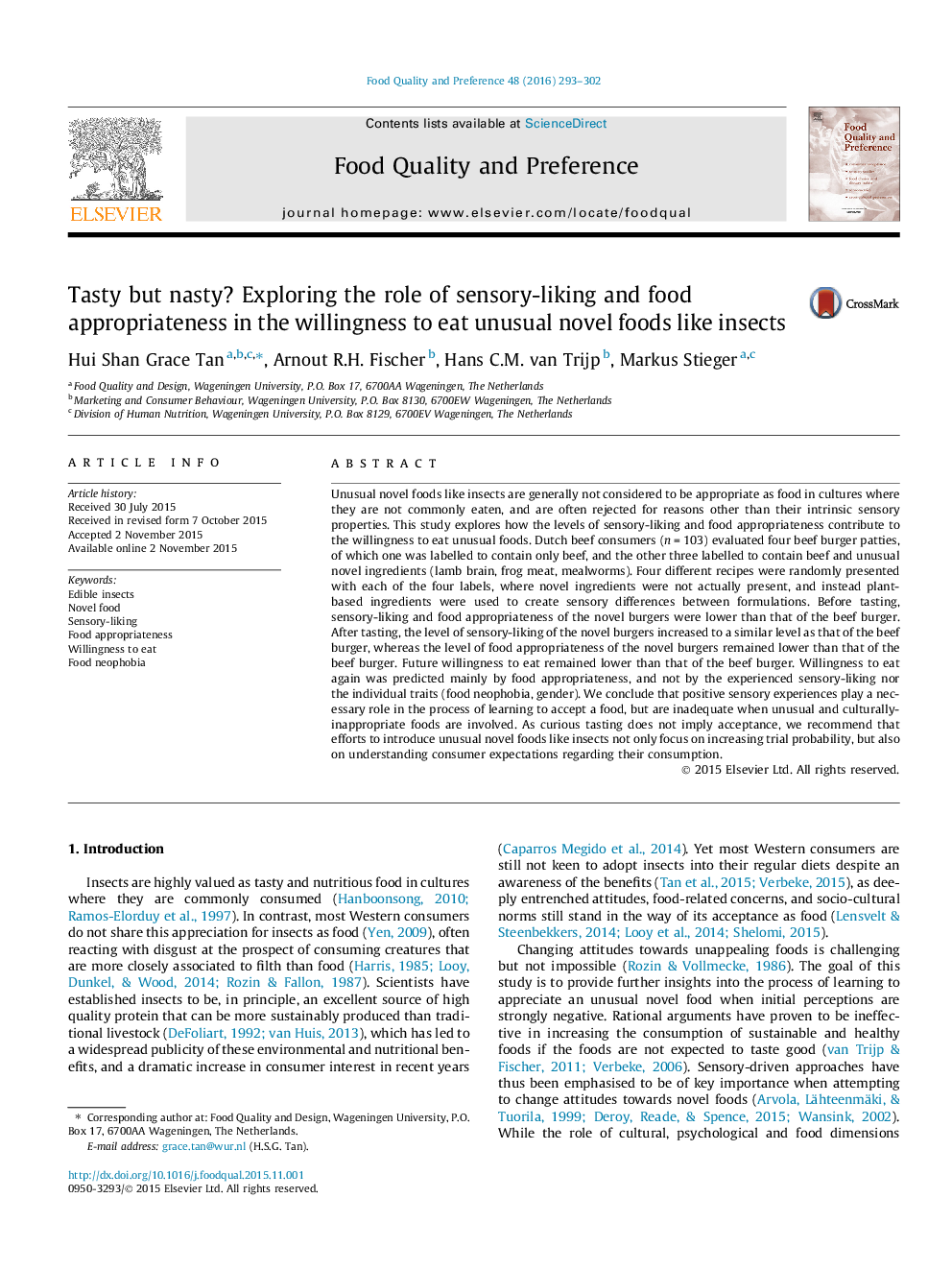| کد مقاله | کد نشریه | سال انتشار | مقاله انگلیسی | نسخه تمام متن |
|---|---|---|---|---|
| 6261232 | 1290566 | 2016 | 10 صفحه PDF | دانلود رایگان |
- Sensory-liking is necessary but insufficient for novel food acceptance.
- Consumers are often willing to taste a food out of curiosity despite their negativity.
- Appropriate preparations and situations could encourage consumption of novel foods.
- Consumer preferences predict consumption intentions better than individual traits.
Unusual novel foods like insects are generally not considered to be appropriate as food in cultures where they are not commonly eaten, and are often rejected for reasons other than their intrinsic sensory properties. This study explores how the levels of sensory-liking and food appropriateness contribute to the willingness to eat unusual foods. Dutch beef consumers (n = 103) evaluated four beef burger patties, of which one was labelled to contain only beef, and the other three labelled to contain beef and unusual novel ingredients (lamb brain, frog meat, mealworms). Four different recipes were randomly presented with each of the four labels, where novel ingredients were not actually present, and instead plant-based ingredients were used to create sensory differences between formulations. Before tasting, sensory-liking and food appropriateness of the novel burgers were lower than that of the beef burger. After tasting, the level of sensory-liking of the novel burgers increased to a similar level as that of the beef burger, whereas the level of food appropriateness of the novel burgers remained lower than that of the beef burger. Future willingness to eat remained lower than that of the beef burger. Willingness to eat again was predicted mainly by food appropriateness, and not by the experienced sensory-liking nor the individual traits (food neophobia, gender). We conclude that positive sensory experiences play a necessary role in the process of learning to accept a food, but are inadequate when unusual and culturally-inappropriate foods are involved. As curious tasting does not imply acceptance, we recommend that efforts to introduce unusual novel foods like insects not only focus on increasing trial probability, but also on understanding consumer expectations regarding their consumption.
Journal: Food Quality and Preference - Volume 48, Part A, March 2016, Pages 293-302
